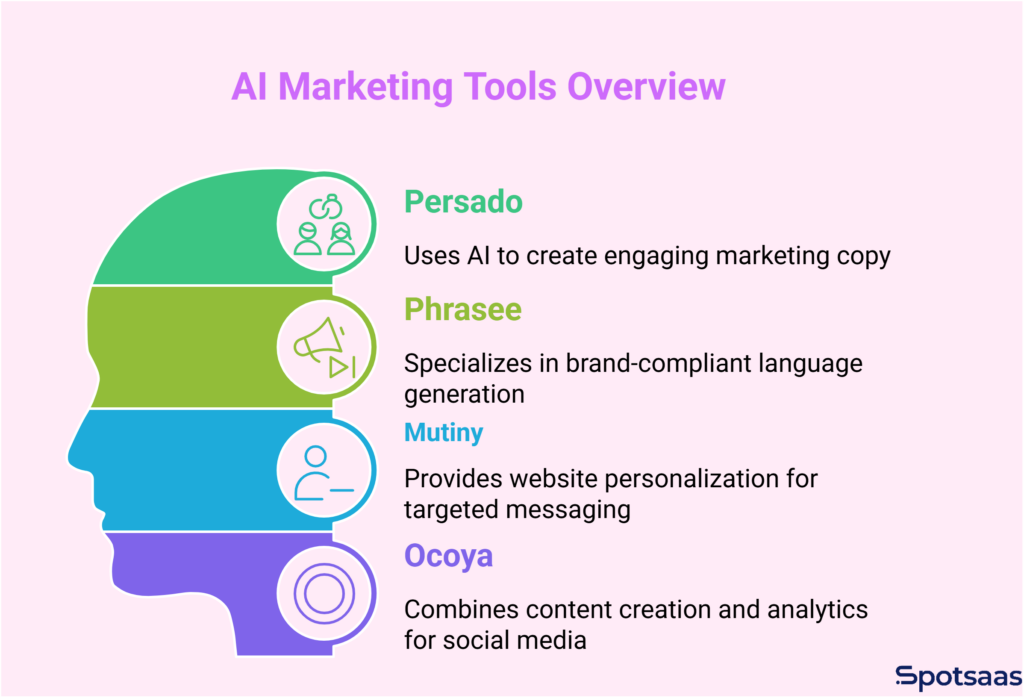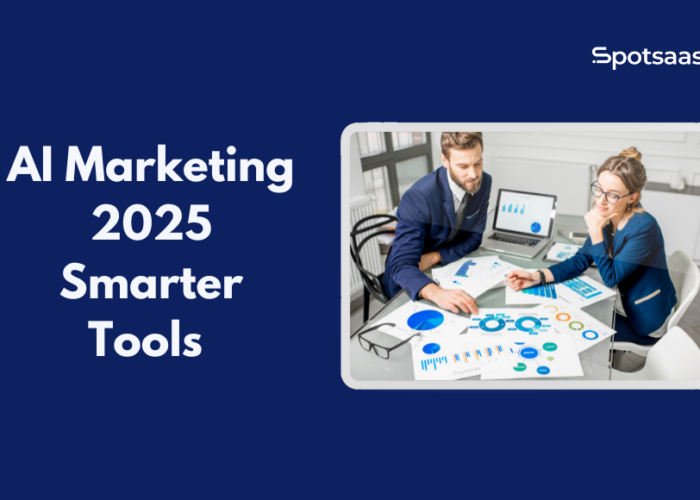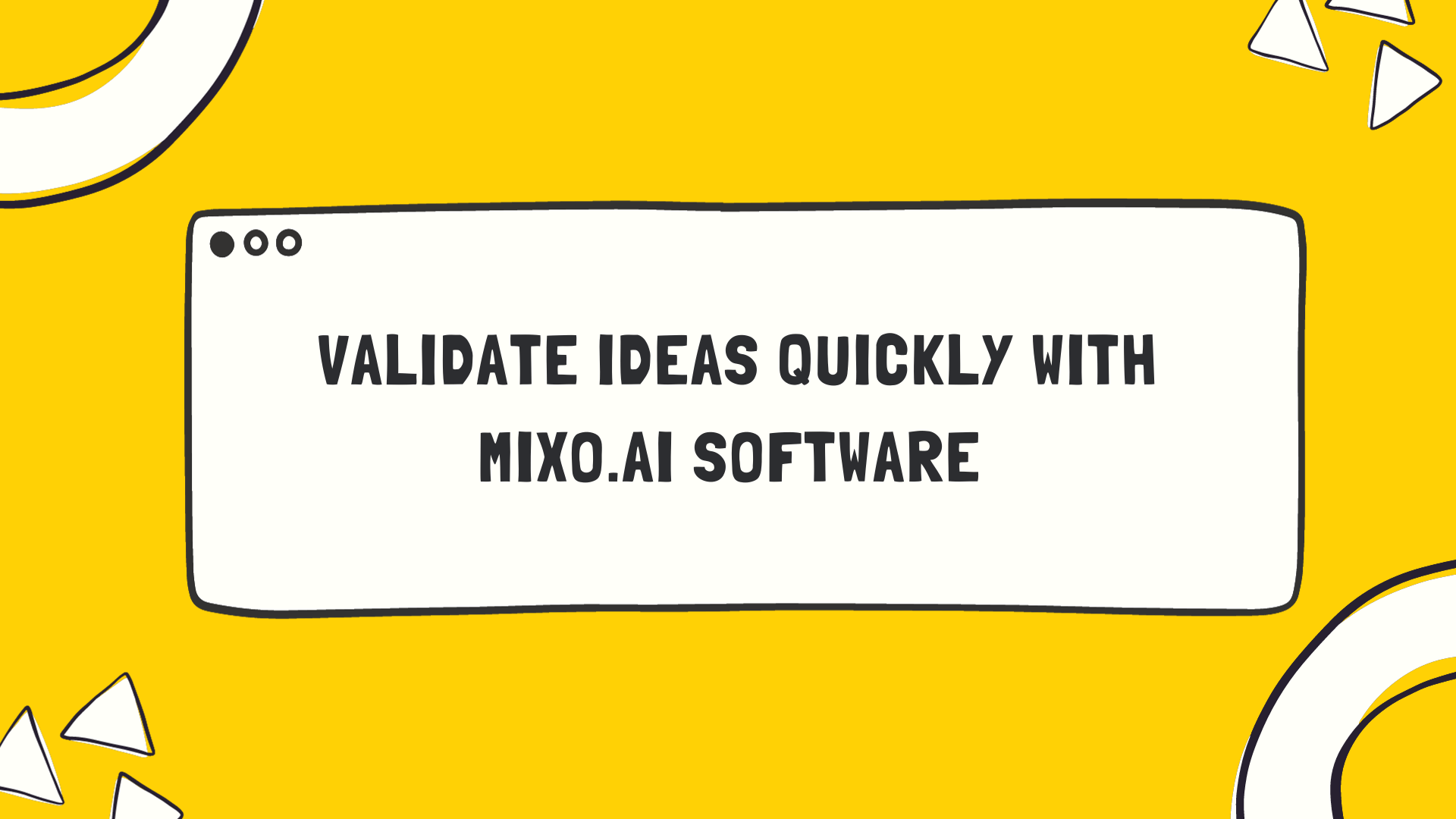In 2024, marketing automation was mostly about scheduling social posts, tweaking email subject lines, and running A/B tests. Fast forward to 2025, and AI is no longer just assisting marketers—it’s taking the wheel.
AI is now crafting entire campaigns, optimizing ad budgets in real time, and predicting which creative will convert before it ever goes live. If that sounds like the future, it’s because it is—and it’s happening right now.
Here’s a blog of how AI is transforming marketing at warp speed and what you need to know to keep up.
This Week’s Game-Changers ⚡
- AI Driven Marketing Case Studies – See how leading brands use AI for personalization, efficiency, and higher ROI.
- Marketing Paid vs. Free Tools – Compare premium and free AI tools to find what fits your goals and budget.
- Tech Recap – Catch up on the latest funding rounds, product launches, and shifts in the SaaS and AI landscape.
- Top 5 Tools For Marketing – Explore trending AI tools driving smarter campaigns and better performance.
- Hot Takes – Get fast insights into bold innovations and surprising moves in the AI marketing space.
- Product Pick of the Week – Discover a standout SaaS or AI tool that’s making waves but still under the radar.
AI-Driven Marketing: Case Studies 🤯
AI is no longer just supporting marketing—it’s actively steering how campaigns are personalized, optimized, and scaled. Here are three real-world examples of how major brands are leveraging AI to drive business outcomes.
Starbucks’ AI-Driven Personalization
Starbucks has long been known for customer loyalty, but in recent years, it has supercharged its personalization strategy using AI.

How It Works
The Starbucks implemented an AI-powered personalization engine that pulls data from its mobile app, loyalty program, and in-store transactions. This engine uses machine learning to analyze purchase history, behavioral patterns, and customer preferences.
What It Delivered
- Customized Recommendations: The AI analyzes what customers buy, when they buy it, and how often. It then suggests drinks or food items tailored to individual tastes—like suggesting a seasonal latte to someone who always buys flavored coffee.
- Loyalty Program Enhancement: Starbucks used AI to tailor rewards and offers, creating incentives that feel personal and timely. This helped increase engagement and long-term loyalty.
- Sales Growth: Personalized interactions led to higher customer satisfaction and increased spending per visit. When customers feel seen, they tend to buy more—and more often.
Why It Matters
Starbucks shows that when AI is aligned with customer experience, it doesn’t just improve marketing efficiency—it builds stronger emotional connections with customers.
Accenture’s AI-Powered Data Insights
As a global consulting and tech powerhouse, Accenture handles mountains of client data. To make sense of it, they turned to AI and advanced analytics.

How It Works
Accenture developed systems that use AI to scan vast datasets for insights that might take human analysts weeks to find. These include consumer behavior patterns, market shifts, and product performance signals.
What It Delivered
- Customer Segmentation: AI helped break down massive, undifferentiated audiences into precise segments based on behavior, needs, and preferences.
- Campaign Optimization: Using real-time insights, marketers could fine-tune campaigns on the fly—adjusting creative, timing, or channels based on what was resonating.
- Decision Support: Beyond marketing teams, Accenture used AI-generated insights to help executives make strategic decisions around product development and go-to-market plans.
Why It Matters
This case highlights AI’s power not just to automate—but to illuminate. It turns raw data into a competitive edge.
Yum Brands Integrates AI Into Drive-Thrus
Yum Brands (Taco Bell, KFC, Pizza Hut) is taking fast food into the future by using AI to overhaul its drive-thru operations.

How It Works
In partnership with Nvidia, Yum Brands deployed AI tools such as voice recognition systems and computer vision to streamline operations and enhance customer service.
What It Delivered
- Voice-Activated Ordering: AI-enabled voice assistants now handle drive-thru orders, reducing human error and speeding up service.
- Operational Optimization: Computer vision tools monitor kitchen and service operations to identify bottlenecks and inefficiencies—allowing managers to make quick improvements.
- Performance Analytics: AI tracks everything from service times to order accuracy, providing actionable insights to boost efficiency and customer satisfaction.
Why It Matters
For high-volume, quick-service environments like fast food, every second counts. AI helps Yum Brands improve accuracy, reduce costs, and elevate the customer experience—all at scale.
Paid vs. Free Tools: Best SaaS Sales Alternatives
AI is reshaping the sales and marketing stack, but not every great tool comes with a hefty price tag. Here’s a breakdown of top paid SaaS platforms and their best free or freemium counterparts.

Salesforce Marketing Cloud ➝ HubSpot Marketing Hub
Salesforce Marketing Cloud is designed for enterprise teams handling large-scale, multi-channel campaigns. It includes deep automation, predictive analytics, and personalized journey mapping.
HubSpot Marketing Hub offers a generous free tier, including email marketing, CRM, and basic automation—perfect for lean teams and growing businesses.
When to Choose What
Salesforce is best for large marketing operations needing advanced control and scale. HubSpot works well for startups or small businesses that want powerful tools without upfront costs.
Marketo Engage ➝ Mailchimp
Marketo Engage is Adobe’s marketing automation platform, ideal for B2B companies. It supports complex lead scoring, multi-stage nurturing, and deep analytics.
Mailchimp offers user-friendly email marketing with automation, landing pages, and customer journeys—all included in its free plan.
When to Choose What
Choose Marketo for long sales cycles and advanced B2B segmentation. Mailchimp is better suited for simple campaigns and businesses just starting to automate.
Clearbit ➝ Leadfeeder
Clearbit provides real-time data enrichment, giving your team detailed insights about leads from the moment they hit your site.
Leadfeeder helps identify anonymous companies visiting your website using IP tracking and integrates with CRMs to support follow-up.
When to Choose What
Use Clearbit when your sales process depends on rich firmographic data and advanced targeting. Leadfeeder is ideal for early-stage B2B teams who want basic visibility without paying for enrichment.
Jasper AI ➝ Copy.ai
Jasper AI supports full-scale content production—from long-form blog posts to ad copy—while managing brand voice and team collaboration.
Copy.ai is a fast, simple tool that generates marketing copy, social posts, and emails. The free version is more than enough for light content needs.
When to Choose What
Jasper is right for teams managing multiple content types at scale. Copy.ai works well for individuals or small teams needing quick, AI-generated copy.
6sense ➝ Apollo.io
6sense uses AI-powered intent data and predictive analytics to help sales teams prioritize the right accounts and time outreach.
Apollo.io is a freemium tool that combines lead generation, email sequencing, and ABM tools for outbound prospecting.
When to Choose What
6sense is for established sales teams running full account-based strategies. Apollo.io is a great option for startups or teams testing ABM for the first time.
Tech Recap: Biggest Moves in SaaS & AI
The SaaS and AI landscape is evolving fast, with startups raising big rounds and tech giants rolling out game-changing features. Here’s a snapshot of the most impactful developments shaping the future of marketing, automation, and digital strategy.
Auxia Secures $23.5 Million to Advance AI Marketing Agents
Auxia, a rising AI startup based in Palo Alto, has just raised $23.5 million in a funding round led by VMG Technology Partners.
The company is building AI-powered marketing agents that deliver hyper-personalized content across the customer journey—and this funding is set to supercharge their development efforts.

What Auxia Does?
Auxia focuses on using AI agents—essentially autonomous digital assistants—for marketing personalization at scale. These agents use machine learning to interpret customer behavior, preferences, and purchase intent in real time, allowing brands to deliver the right message, on the right channel, at exactly the right moment.
This goes beyond traditional automation by adding decision-making intelligence into the process.
Personalized Marketing
Auxia’s agents analyze customer data across email, web, mobile, and social platforms to serve customized messages and product suggestions. Instead of simple segmentation, the AI reacts to individual user behavior and continuously adapts content and timing to drive engagement.
Workflow Automation
For marketing teams, Auxia’s platform automates repetitive and complex tasks—such as campaign setup, audience targeting, A/B testing, and performance monitoring. The result is faster execution, fewer manual errors, and more time for teams to focus on strategy.
Strategic Funding
The $23.5 million round—led by VMG Technology Partners and supported by other major investors—shows clear market confidence in Auxia’s approach. It positions the startup to expand its R&D, grow its team, and scale adoption among enterprise clients.
Why It Matters
Auxia’s model signals a major shift in how marketing is executed. We’re moving from rule-based automation to adaptive, intelligent agents that can independently manage customer interactions. This pushes personalization to a level that previously required large teams and complex tech stacks—now achievable with AI.
As more companies seek efficiency and relevance in a noisy market, tools like Auxia could become the backbone of modern marketing operations.
Apple Faces Lawsuit Over Delayed AI Features in Marketing
Apple is now facing legal heat after a federal lawsuit was filed against the company for allegedly misleading consumers about its AI capabilities.
The core of the issue? Apple’s marketing campaigns heavily promoted new “Apple Intelligence” features—particularly an upgraded version of Siri—as if they would be available immediately with new devices. In reality, many of these features were delayed or not yet functional at launch.

Consumer Expectations
The lawsuit argues that Apple created a false impression through its advertising, leading buyers to believe that next-gen AI features—like improved voice interactions, smarter automation, and predictive personalization—would be ready out of the box.
For customers spending top dollar on new devices, the absence of these promised features felt like a broken promise.
Legal Action
The legal filing seeks class-action status, meaning it could include a broad group of affected consumers. Plaintiffs are seeking financial compensation and alleging that Apple violated consumer protection laws by promoting features that weren’t yet operational at the time of sale.
Marketing Implications
This case highlights a critical tension in tech marketing: the pressure to showcase innovation before it’s fully developed. With AI becoming a key competitive edge, companies often feel the need to promote features in advance.
But doing so without clear disclaimers or timelines can backfire—leading to regulatory scrutiny, legal consequences, and brand damage.
Why It Matters
The situation serves as a wake-up call for marketers. In the race to showcase cutting-edge AI, transparency matters more than ever. If features aren’t ready, overpromising can quickly erode consumer trust—and potentially invite lawsuits.
It’s a reminder that strong marketing isn’t just about hype—it’s about honest communication, especially in the AI space where consumer expectations are rising fast.
Top 4 AI Marketing Tools Trending Now 🎯
From automating copywriting to personalizing entire websites, these AI tools are making marketing more efficient, data-driven, and targeted than ever. Here’s a closer look at the tools gaining serious traction right now.

Persado
Persado uses natural language generation to create emotionally resonant, data-optimized marketing copy. Its AI analyzes audience response data to craft messages that drive engagement and conversion—across email, SMS, ads, and landing pages.
It’s especially popular with enterprise marketers who want copy that’s backed by behavioral data rather than gut instinct.
Phrasee
Phrasee specializes in brand-compliant language generation. It helps companies create consistent, on-brand copy for subject lines, ads, push notifications, and social posts.
The tool learns a brand’s tone and optimizes language for performance—boosting open rates and CTRs without losing voice or style.
Mutiny
Mutiny is a website personalization platform that uses AI to deliver custom content and CTAs based on a visitor’s industry, company size, behavior, or traffic source.
B2B companies love it because it enables hyper-targeted messaging without code—turning generic websites into tailored experiences that convert better.
Ocoya
Ocoya combines content generation, post scheduling, and performance analytics into one AI-powered social media tool.
It can create and auto-publish engaging posts across platforms like LinkedIn, Instagram, Facebook, and X.
With built-in copywriting and design templates, it’s ideal for solo marketers, small teams, or content creators looking to scale their social presence with less effort.
Hot Takes on AI in Marketing 💸
AI is no longer a behind-the-scenes engine—it’s changing front-end strategy, consumer expectations, and even entire industries. Here are the boldest AI-driven moves making headlines right now.
Adobe’s AI Agents Are Here to Rewrite Marketing Playbooks
Adobe has introduced Agent Orchestrator, a new AI-powered platform designed to automate the entire marketing process—from audience segmentation to content creation and performance optimization.
This isn’t just another automation tool. Adobe’s AI agents can make decisions in real-time, react to customer behavior, and dynamically generate personalized experiences across digital touchpoints. It’s a massive step toward fully autonomous marketing systems.
Why it matters
Adobe is turning AI from an assistant into a campaign manager, pushing us closer to a future where marketers set goals—and AI handles the execution.
Google Supercharges Gmail Search with AI
Google has quietly rolled out an AI-powered upgrade to Gmail’s search functionality, making inbox chaos a thing of the past. The updated system ranks emails based on your interaction history, relevance, and frequency—essentially guessing what you’re looking for before you finish typing.
It works across both web and mobile, and is part of Google’s broader move to embed more AI into everyday productivity tools.
Why it matters
For marketers who live in their inboxes, better AI search means less wasted time and fewer missed opportunities. It’s also a sign that AI is now embedded into even the most routine workflows.
AI Shakes Up the Gambling Industry—And Regulators Aren’t Ready
AI isn’t just changing how we advertise or optimize—it’s entering high-stakes territory like gambling and gaming.
AI-driven prediction markets, real-time odds models, and crypto-based sweepstakes platforms are gaining popularity. These platforms use machine learning to set betting lines and outcomes more dynamically than ever before.
But while the tech is advancing fast, regulation isn’t keeping up. Many of these models operate in legal gray areas, especially when combined with crypto.
Why it matters
The rise of AI in gambling is a red flag for regulators—and a test case for how emerging tech will collide with outdated policies. For marketers in gaming or fintech, this signals both opportunity and scrutiny ahead.
Tool of the Week: Monday.com
Monday.com is more than just a project management tool—it’s an all-in-one work operating system that helps teams of all sizes plan, track, and deliver projects faster and smarter.

What It Does
Monday.com offers a highly visual and customizable interface where teams can manage everything from daily tasks to complex project timelines. Whether you’re managing a marketing campaign, a product launch, or cross-functional operations, Monday.com adapts to your workflow—not the other way around.
Key Features
- Real-Time Project Tracking: Stay on top of deadlines and deliverables with clear, color-coded boards that give you instant visibility into progress and bottlenecks.
- Task Automation: Automate repetitive work—like status updates, notifications, and task assignments—without needing to write a single line of code.
- Seamless Collaboration: Collaborate within tasks, mention teammates, and share files or updates—all in one centralized place.
- Integrated Tools: With built-in tools for video conferencing, CRM, time tracking, and reporting, Monday.com eliminates the need for jumping between multiple platforms.
- Third-Party Integrations: Connect with over 200 apps like Slack, Zoom, Google Workspace, Outlook, and more to create a seamless tech ecosystem.
- Secure Cloud Access: Cloud-based infrastructure ensures your team can work securely from anywhere—whether they’re in the office or on the go via mobile.
Why It Stands Out
What makes Monday.com special is its flexibility. It’s not just for project managers—sales teams, marketing departments, HR, customer support, and even freelancers are using it to organize their work and collaborate more effectively. Its scalability makes it a fit for startups and enterprises alike.
➡️ Try Monday.com today and see how it can transform the way your team works—from chaos to clarity.
Quote of the Week 🌟
“Artificial intelligence is transforming marketing by enabling unprecedented levels of personalization and efficiency, allowing brands to connect with consumers in more meaningful ways.”
– Lara Balazs, Chief Marketing Officer at Adobe
Conclusion
AI is no longer a future trend—it’s the current engine behind smarter, faster, and more effective marketing. From hyper-personalized campaigns at Starbucks to AI-managed drive-thrus at Yum Brands, real-world use cases are proving just how transformational these tools can be.
Whether you’re a solo marketer testing free tools or part of an enterprise investing in full-stack automation, the message is the same: adapt or get left behind. The brands that win in 2025 will be the ones that don’t just use AI—they build their marketing around it.
Stay curious, stay agile, and start experimenting now—because in marketing, AI waits for no one. 🚀




